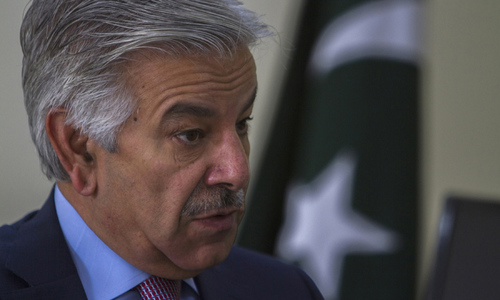Pakistan surprised by its inclusion in 34-nation military alliance
ISLAMABAD: Pakistan found itself in the crosshairs of Middle Eastern politics on Tuesday as Saudi Arabia named it as part of its newly formed 34-nation military alliance of Muslim countries meant to combat terrorism, without first getting its consent.
Talking to journalists, Foreign Secretary Aizaz Chaudhry said he was surprised to read the news that Saudi Arabia had named Pakistan as part of the alliance.
He said he had asked the country’s ambassador in Riyadh to get a clarification from Saudi Arabia on the matter.
Know more: Pakistan part of 34-state Islamic military alliance against terrorism, says KSA
Another senior official also confirmed that Pakistan was not consulted before inclusion in the alliance.
In a statement on Tuesday, the Saudi government surprised many countries by announcing that it had forged a coalition for coordinating and supporting military operations against terrorism in Iraq, Syria, Libya, Egypt and Afghanistan. The headquarters of the new Saudi-led coalition would be based in Riyadh.
This is not the first time that Saudi Arabia has named Pakistan as part of its military alliances without Islamabad’s knowledge and consent. The Saudis earlier named Pakistan as part of the coalition that carried out operations in Yemen and a Pakistani flag was displayed at the alliance’s media centre.
Pakistan later declined to join the Yemen war.
It is Pakistani government’s policy that it will not deploy its troops outside the country’s borders except for UN peacekeeping missions.
In the past Pakistan has twice rejected US calls for joining alliances against the militant Islamic State (IS) group on the same pretext.
“We are not looking for any involvement outside our region,” army spokesman Lt Gen Asim Bajwa had said last month while replying to a question about the possibility of Pakistan becoming part of a US-led coalition against IS.
It is unclear how Riyadh went ahead with announcing Pakistan’s participation in the new alliance. It is also difficult to speculate if Islamabad will change its policy because of its close ties with the kingdom.
Pakistan, however, has counter-terrorism cooperation with Saudi Arabia.
The IS operations and activities across the Middle East have led to military responses executed by alliances that most of the time rival each other. Syria has been battling IS and other militants with the help of Iran and Russia.
The US, which is supporting groups trying to topple Syrian President Bashar al-Assad, is meanwhile leading another alliance against IS.
Iran has led military efforts along with the Iraqi army and volunteers in the fight against IS in Iraq. The US-led alliance has been supporting the ground operations against IS with their air strikes.
Published in Dawn, December 16th, 2015













































